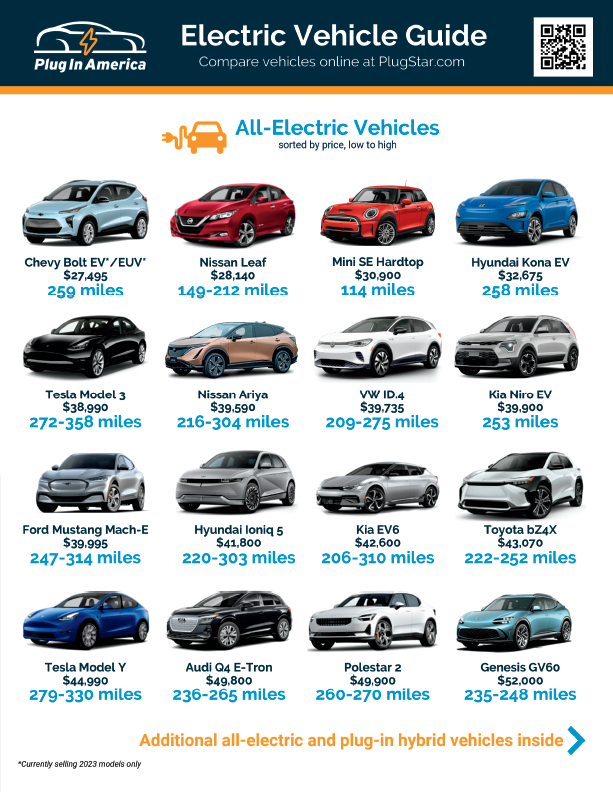CPOpen: Your Gateway to Current Affairs
Stay updated with the latest trends and insights across various topics.
Charge Ahead: Why Electric Cars Are the Future of Driving
Discover why electric cars are taking over the roads! Uncover the benefits, innovations, and the future of eco-friendly driving.
The Environmental Impact of Electric Vehicles: Driving Towards a Greener Future
The rise of electric vehicles (EVs) is often heralded as a significant step towards a greener future. Unlike traditional gas-powered vehicles, EVs produce zero tailpipe emissions, which means they help reduce air pollution and greenhouse gas emissions that contribute to climate change. However, it's crucial to consider the full environmental impact of EVs, which includes the sourcing of materials like lithium and cobalt for batteries, and the energy used in their manufacture. For a detailed analysis, you can refer to the Natural Resources Defense Council for insights into how these factors contribute to the overall environmental equation.
Moreover, the benefits of EVs extend beyond individual vehicle emissions. As more renewable energy sources, such as solar and wind power, are integrated into the electricity grid, the lifecycle emissions associated with charging EVs will continue to decline. Consequently, the transition towards electric vehicles could lead to a significant reduction in carbon footprints if supported by sustainable grid practices. Engaging in a comprehensive approach that includes policy support, advancements in battery recycling and technology will ensure that electric vehicles drive us closer to a sustainable future.

Charging Infrastructure: How Ready is Our World for Electric Cars?
The adoption of electric vehicles (EVs) is accelerating globally, with governments and manufacturers pushing for greener alternatives to fossil fuel-powered cars. However, a critical question remains: how prepared is our world for the widespread use of electric cars? According to a report by the International Energy Agency, the number of public charging points needs to increase significantly to meet future demand. Currently, many regions lack the infrastructure to support the expected influx of EVs, which can lead to concerns over range anxiety among potential buyers. Therefore, strengthening the charging network is essential for fostering consumer confidence and encouraging the transition to electric mobility.
Moreover, while some countries have made notable progress in developing charging infrastructure, disparities remain. For instance, places like Norway lead the way with a high EV adoption rate and a robust charging network, as reported by Electrive. In contrast, other regions, particularly in developing nations, face significant challenges such as inadequate electrical grids and limited investment in EV technology. Successful integration of electric cars requires not only more charging stations but also advancements in smart grid technology, optimized energy management, and public-private partnerships to create seamless charging solutions for all users.
Top 5 Myths About Electric Cars Debunked
Electric cars have become increasingly popular, yet many myths continue to circulate about their performance and feasibility. One common misconception is that they can't travel long distances, leading to concerns about range anxiety. In reality, advancements in battery technology have dramatically increased the range of electric vehicles (EVs), with many models capable of traveling over 300 miles on a single charge. For more information on the latest electric car ranges, check out this article from U.S. Department of Energy.
Another prevalent myth is that electric cars are expensive to maintain. In fact, EVs typically have lower maintenance costs than traditional gasoline vehicles, due to fewer moving parts and no need for oil changes. Additionally, many manufacturers offer generous warranties on battery components, providing peace of mind for consumers. You can read more about the cost benefits of electric vehicle maintenance in this insightful piece from Edmunds.